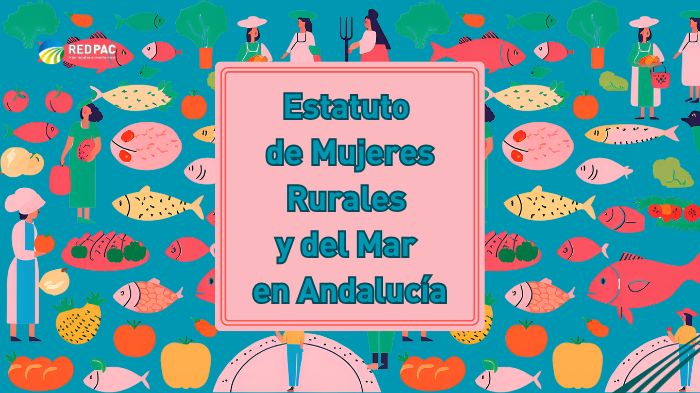
17 de December de 2024
Mujeres
The Andalusian Parliament approves the Statute of Rural and Seafaring Women, which combats gender gaps in the agricultural and fishing sectors.
- The Andalusian Parliament approves the Statute of Rural and Seafaring Women, which combats gender gaps in the agricultural and fishing sectors.
- The Statute seeks to guarantee women's access to resources, employment, and adequate protection against violence and harassment.
According to data from the Andalusian Regional Government and the Active Population Survey (EPA) of the National Institute of Statistics (INE) , women accounted for 42% of the Andalusian economy in 2020, while in the agricultural and fishing sectors, they represented 25% and 20% , respectively. According to these statistics, there is a clear need for regulations that protect women and promote their presence and representation in all sectors, and in this case, in the primary sector.
Last Wednesday, November 6, the Parliament of Andalusia approved the Statute of Rural and Seafaring Women . This legislation represents a historic advance in legislation on women's protection, as well as being a groundbreaking and pioneering project.
The president of the Andalusian Coordinator of Rural Women's Organizations (COAMUR) , Adela Romero , explained that the idea of promoting this Statute arose from the recognition of structural inequalities in the agri-food sector, where "there are no women in management positions or in development groups." Inspired by initiatives such as shared ownership, they decided to bring the proposal to Andalusia through the Andalusian Council for Women's Participation. She explained that "the associations began to energize activities and work on making women visible in the media, as well as on parity and equity in rural and fisheries development groups."
Key points
The Statute's code , which consists of 29 articles, establishes a comprehensive framework for promoting gender equality in the agricultural, agri-food, and fisheries sectors, addressing key aspects such as:
- Access to aid and subsidies: the regulatory bases for these grants must assign 10% of the maximum score to applications that promote gender equality.
- Access to credit: Measures will be promoted to ensure that women in these sectors have access to credit without gender gaps.
- Grants for rural women's organizations: subsidies for organizations seeking gender equality in rural areas.
- Promoting women's employment: prioritizing the hiring of women through a system that respects the principles of objectivity and competition.
- Support for self-employment: with social economy initiatives driven by women.
- Occupational health: special protection during pregnancy and maternity and specific occupational health measures for women.
- Protection against sexual and gender-based harassment: training activities aimed at companies and organizations relevant to this area.
- Joint ownership: Joint ownership of agricultural holdings will be promoted through technical advice on the procedures.
- Specific measures for balanced representation: demanding fair and equitable representation of women and men in Local Action Groups, with sanctions for non-compliance.
Development process and pending challenges
The Andalusian Government has agreed on the drafting of the bill in collaboration with representative entities of the sector's professionals such as ASAJA , COAG and UPA and Agri-Food Cooperatives , the Andalusian Association of Women in the Fishing Sector (AndMuPes) , the Association of Families and Women of the Rural World (Afammer) , the Andalusian Coordinator of Rural Women's Organizations (COAMUR)
Adela Romero emphasizes that teamwork was essential in pushing for the development of a draft with concrete measures, including resources for women farmers, gender-sensitive technologies , and media visibility.
However, not all proposals were included. The president regretted that specific measures for migrant and seasonal women were not considered, "due to the lack of connection between women's organizations and these groups." Despite this, she expressed satisfaction that most of the measures were accepted.
Finally, she emphasized that these initiatives not only benefit Andalusia but should be extended to the national and European levels, and that these demands should be taken to a broader level, highlighting the need to consider the reality of rural women beyond cooperatives.









